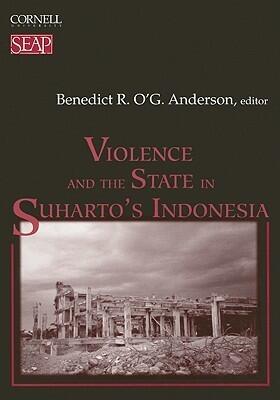
Violence and the State in Suharto's Indonesia
아직 평점이 없습니다
형식
페이퍼백
페이지
284
언어
영어
출판됨
Jan 1, 2000
출판사
Southeast Asia Program Publications
ISBN-10
087727729X
ISBN-13
9780877277293
설명
Benedict Anderson delves into the complex interplay of violence and state power in Indonesia during Suharto's regime. Through a series of insightful essays, he sheds light on how institutionalized violence became a cornerstone of governance, shaping both the political landscape and societal dynamics of the time. Anderson's analysis reveals the mechanisms through which the state maintained control, often resorting to brutal measures that left a profound mark on the nation.
The text explores the consequences of such violence, not only in terms of immediate effects but also regarding the long-lasting implications on memory and identity within Indonesian society. Anderson meticulously examines how these events have been woven into the fabric of daily life, influencing both historical narratives and contemporary politics.
Throughout his work, he captures a sense of urgency in addressing the need to comprehend this violent legacy, pushing readers to consider its relevance in today’s discussions on authority, nationalism, and justice. Anderson's dedication to unraveling these themes offers a compelling look into a pivotal era of Indonesian history, encouraging reflection on the relationship between state power and the citizens it governs.
The text explores the consequences of such violence, not only in terms of immediate effects but also regarding the long-lasting implications on memory and identity within Indonesian society. Anderson meticulously examines how these events have been woven into the fabric of daily life, influencing both historical narratives and contemporary politics.
Throughout his work, he captures a sense of urgency in addressing the need to comprehend this violent legacy, pushing readers to consider its relevance in today’s discussions on authority, nationalism, and justice. Anderson's dedication to unraveling these themes offers a compelling look into a pivotal era of Indonesian history, encouraging reflection on the relationship between state power and the citizens it governs.